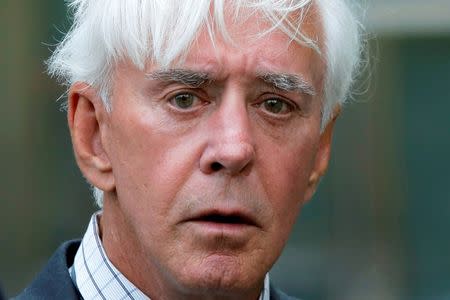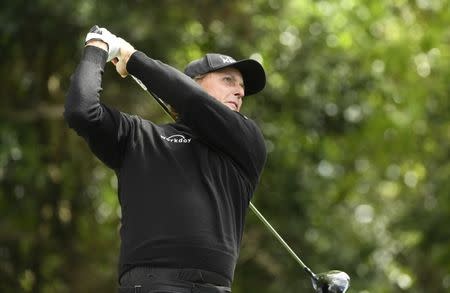Mickelson a distraction in insider trading case: gambler's lawyer
By Brendan Pierson (Reuters) - An attorney defending Las Vegas sports gambler William "Billy" Walters against insider trading charges told jurors on Thursday that prosecutors introduced testimony about star golfer Phil Mickelson to cover up the weakness of their case. In a closing argument in Manhattan federal court, lawyer Barry Berke said prosecutors brought in evidence about the golfer because they did not have enough evidence against Walters himself, likening it to "putty" used to patch holes in a wall. Prosecutors say Walters made more than $40 million trading in Dean Foods Co stock based on insider information from former Dean Foods Chairman Tom Davis, and at one point passed a tip to Mickelson. The golfer agreed to pay back money he made trading Dean Foods stock but has not been accused of wrongdoing. Berke attacked the credibility of Davis, who testified that he passed inside information to Walters for years. Davis has pleaded guilty to insider trading charges and is cooperating with prosecutors. Prosecutors say that in return for insider tips, Davis received personal loans from Walters of more than $1 million. Berke told jurors that Davis made up an elaborate lie to get a sweetheart deal for himself, "reverse engineering" records of his phone calls with Walters and Walters' trades to invent a pattern of insider trading. Davis said he told Walters in advance about earnings reports and about a 2012 spinoff of part of Dean Foods' business. Berke spent much of his argument pointing out what he said were inconsistencies between Davis's testimony and the timing of Walters' phone calls and trades. He attacked Davis's testimony that Walters gave him a special phone to talk about Dean Foods at a meeting at Dallas Love Field, an airfield in Dallas. Berke said flight records for Walters' plane did not fit Davis's account. "It doesn't hold together like the truth," Berke said of Davis's testimony. In a rebuttal, Assistant U.S. Attorney Daniel Goldman acknowledged that Davis, by his own admission, had lied repeatedly, not only while being investigated for insider trading but about stealing from a charity he ran and about marital infidelities. But Goldman said Davis's testimony fit the record of phone calls and trades, despite some inconsistencies. "Tom Davis was asked to recall a years-long conspiracy," Goldman said. "He did his best to remember what he could." The case is U.S. v. Davis et al, U.S. District Court, Southern District of New York, No. 16-cr-00338. (The story was refiled to correct the first paragraph to Thursday instead of Wednesday) (Reporting by Brendan Pierson in New York; Editing by Steve Orlofsky)


